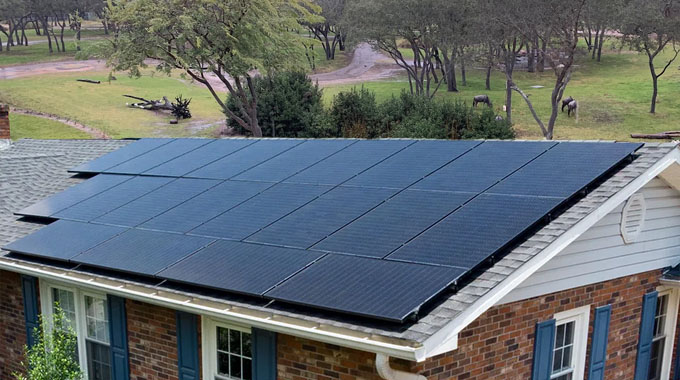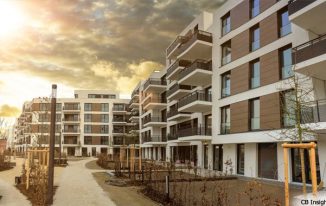Solar panels are an energy-efficient way to cut your power bills. Installing a system can be expensive, but it pays for itself in the long run through savings on your electricity bill.
A solar panel system can be purchased outright or financed. Paying upfront can save you the most money and qualify you for federal and state incentives.
Cost of the Batteries
Battery costs play an essential part in solar panel pricing. They allow you to store your excess energy from the sun, so you can use it later when your panels aren’t producing enough power.
They also provide a way to protect your home against power outages, especially when you’re using a hybrid system or off-grid. To make your battery system as effective as possible, you’ll want to buy batteries with good performance ratings and a high continuous power rating.
Batteries come in various sizes and capacities, each with different features to help you decide which is best for your home. These include battery chemistry (NMC or LFP), round-trip efficiency, depth of discharge, and the amount of electricity it can charge and discharge.
These factors can impact your battery’s cost, so choosing a high-quality solar battery is essential. Reputable roofing contractors can recommend the correct battery for your needs.
Batteries are an expensive component of a solar panel system, but they’re worth it when you can store the excess energy from your solar panels and use it later when you don’t have enough sunlight. They also protect your home from power outages and can save you thousands of dollars over the lifetime of your solar panels.
Cost of the Panels
The cost of solar panels depends on many factors, including your energy usage, the type of system you need, and your geographic location. For example, a solar panel system with batteries that can store excess energy when your home isn’t using it can be significantly less expensive than a grid-tie system without batteries.
The average residential solar panel system costs $3-5 per watt. That means a 5-kW system will cost between $15,000 and $25,000 before tax credits or incentives.
Another factor that influences solar panel prices is the panels’ quality. For example, the best quality monocrystalline solar panels are generally more expensive than a cheaper, less efficient polycrystalline option.
In addition, the quality of the racking system will also impact your installation’s final cost. For example, a more durable racking setup may be required for a roof that experiences heavy snow or hurricanes.
For all of these factors, it’s essential to get quotes from multiple solar installers to compare prices.
After you’ve compared prices, calculate how much savings you can expect each year with a solar panel system. Once you have that information, subtract any incentives and rebates you are eligible for from the total cost of the solar panels to determine how long it will take for the investment to pay off.
Cost of the Installation
Various factors determine the cost of installing solar panels in your house. The electricity you use, how many panels you need, and where you live are all important. The amount of sunlight you receive also affects your system’s output.
Typically, a solar panel system costs between $15,000 and $21,000 for a 6kW installation. It includes the panels, inverter, battery, wiring, and installation.
The solar investment tax credit, which reduces your total installation cost by 30%, is available to everyone. In addition, you may qualify for additional incentives from the state or local government.
A solar panel system can save up to 50% of your energy bills. In addition, you can start to recoup your upfront costs in five to 15 years.
Your home’s orientation toward the sun, roof type, and roof material can all impact the number of solar panels you need and their ability to produce energy. Additionally, the shade your roof gets can make it difficult for panels to generate electricity.
Labor is another high cost to consider when hiring a solar company. Paying $0.50 per watt for labor is a good average, but it can vary from one company to the next.
Cost of the Inverter
The inverter is one of the essential parts of a solar panel system. It converts the DC electricity generated by your panels into usable AC energy for your home or electrical grid.
The inverter will generally account for about 6% of the total cost of your installation. For example, if you were installing a 5.6-kilowatt system (adjusted for your local electrical rates), the inverter would cost about $1,000.
When choosing a solar inverter, it’s critical to ensure it’s the proper size for your solar array. Otherwise, it may cause an inverter clipping problem, where the panels generate more power than the inverter can handle.
Inverters are rated according to the maximum output of the solar panel array, so it’s best to get an inverter slightly lower than your panels’ capacity. However, it will help prevent inverter clipping and save money on energy bills.
Another option is to use a string inverter and power optimizer. These inverters convert the DC energy produced by each panel into a higher-quality, more efficient AC output.
The main advantage of using a string inverter and power optimizer is that it costs less to buy, install and maintain than a microinverter system. However, repairing a string inverter and power optimizer system can be more expensive than a microinverter system because more active components are involved.














